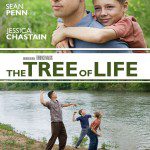I suppose the main reason it makes me cringe a little is that it perpetuates the celebrity culture I am so “meh” towards to begin with. Maybe that’s an internal issue of my own, but in the short span I’ve been a Christian, I’ve seen many more of these men fall rather than remain standing. I’m grateful for the men that continue to stand, but part of me wonders if there will be a grand reveal of some particular sin one day that disqualifies them from ministry. I hope I am wrong on that one, but chances are that I am not in at least a few more. Ask an older generation. Read more
















